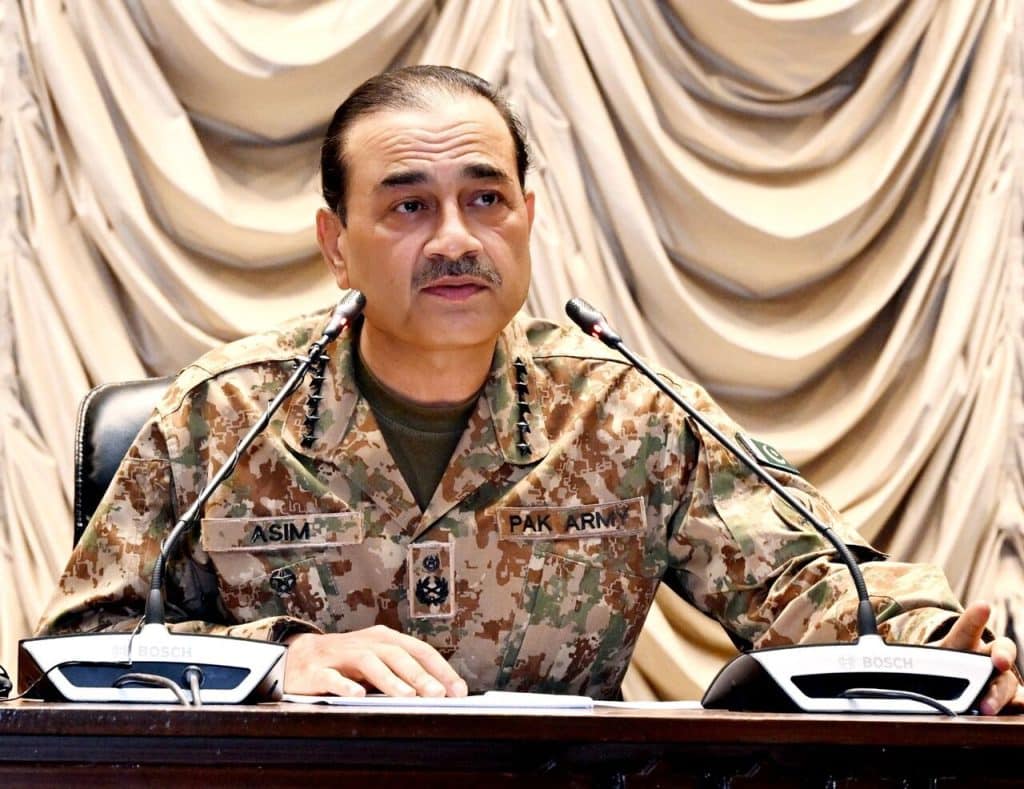Pakistan denies involvement with a third country in the recent war with India.
In his latest statements, the Pakistani army chief warned against any violation of territorial integrity and weakening of his country’s sovereignty by India, and emphasized Pakistan’s swift and unrestricted response to any aggression, denying the claim of its eastern neighbor that a third country participated with Pakistan in the recent war with India.
Pakistani army’s public relations office on Monday, Field Marshal Syed Asim Munir today, during a speech at the National Defense University in Islamabad, threatened India with a damaging response that goes beyond a reciprocal response in the event of any aggression against Pakistan.
Reacting to the recent claim by the Indian Army Deputy Chief of Staff regarding the depth of Pakistan’s strategic ties with China during the 4-day war (17-20 Ordibehesht 1404) and Beijing’s technical assistance and electronic warfare to Islamabad, he said, “Naming other countries as partners in this purely bilateral military conflict between Pakistan and India is a worthless attempt by New Delhi to play camp politics and their desperate attempt to remain as a beneficiary of the larger geopolitical competition in a region that is tired of hegemonic ideology.”
Rejecting any involvement of his country with a third party in the recent war with India, which has been stopped for about 2 months and a ceasefire has been established between the two nuclear-armed neighbors, the Pakistani Army Chief added, “The claims of foreign support for Pakistan’s successful ‘Banyan Marsus’ operation are irresponsible and factually incorrect and reflect a chronic reluctance to acknowledge the indigenous capability and institutional resilience that has been built over decades of strategic caution.”
General Asim Munir noted that India’s failure to achieve its stated military objectives during Operation Sindoor—and the subsequent attempt to justify this shortcoming through complex logic – is indicative of its lack of operational preparedness and strategic foresight.
He warned India that any attempt to target Pakistan’s population centers, military bases, economic centers and ports would immediately result in a deeply damaging response that would go beyond a reciprocal response.
The Pakistani army chief concluded by saying that the country’s response to any aggression would be swift, decisive and unrestrained, and that the burden of escalating tensions lay with the aggressor.
According to IRNA, as tensions between Islamabad and New Delhi escalated after a shooting incident in India’s Pahalgam region on May 2, military clashes broke out between the two South Asian neighbors, and after several days of reciprocal attacks, the foreign ministers of India and Pakistan announced on May 10 that they had reached an understanding for the immediate implementation of a “complete ceasefire and cessation of military action.”
Pakistan claims that in its counter-attack against the Indian attack on the morning of Wednesday, May 7, it was able to shoot down 6 Indian fighter jets, including 3 French Rafale jets, and in its military operation in response to the Indian attack, it destroyed 2 S-400 defense systems, and in all these stages, it used its indigenous fighter jets called “JF-17” and the Chinese fighter jet JF-10C.

